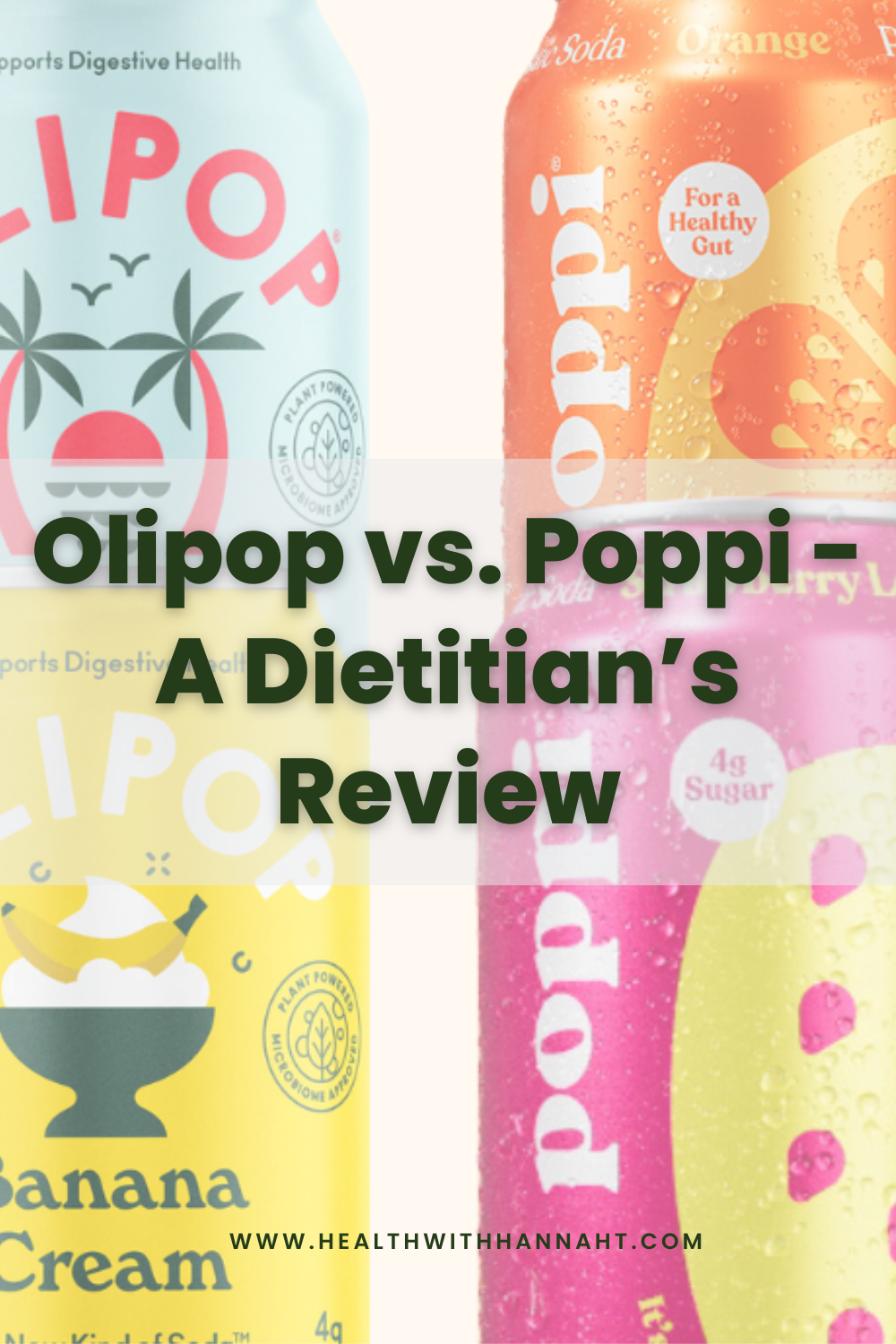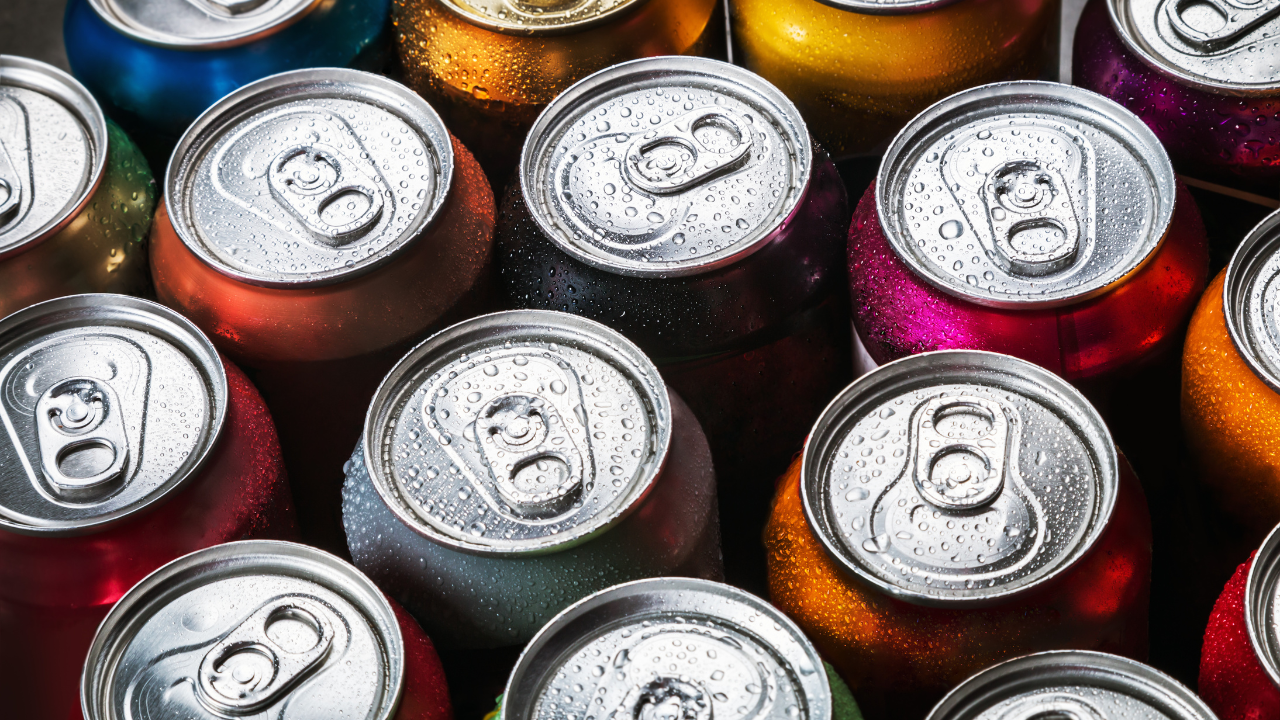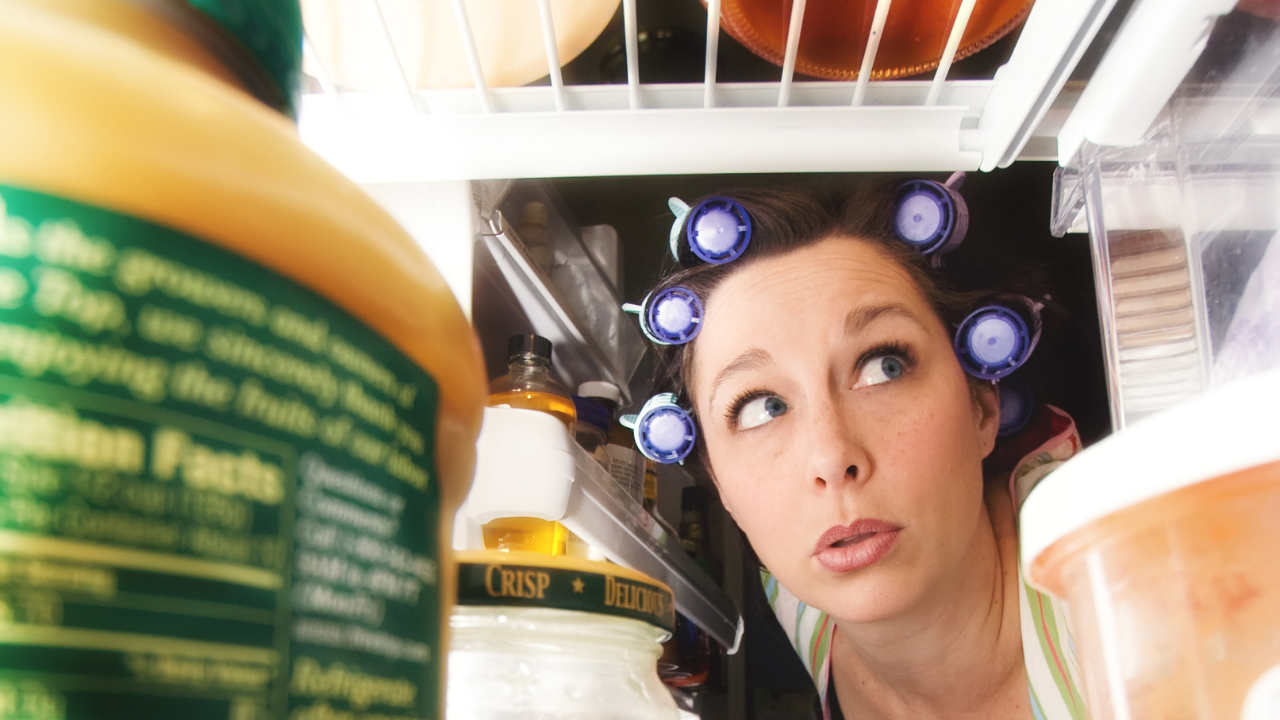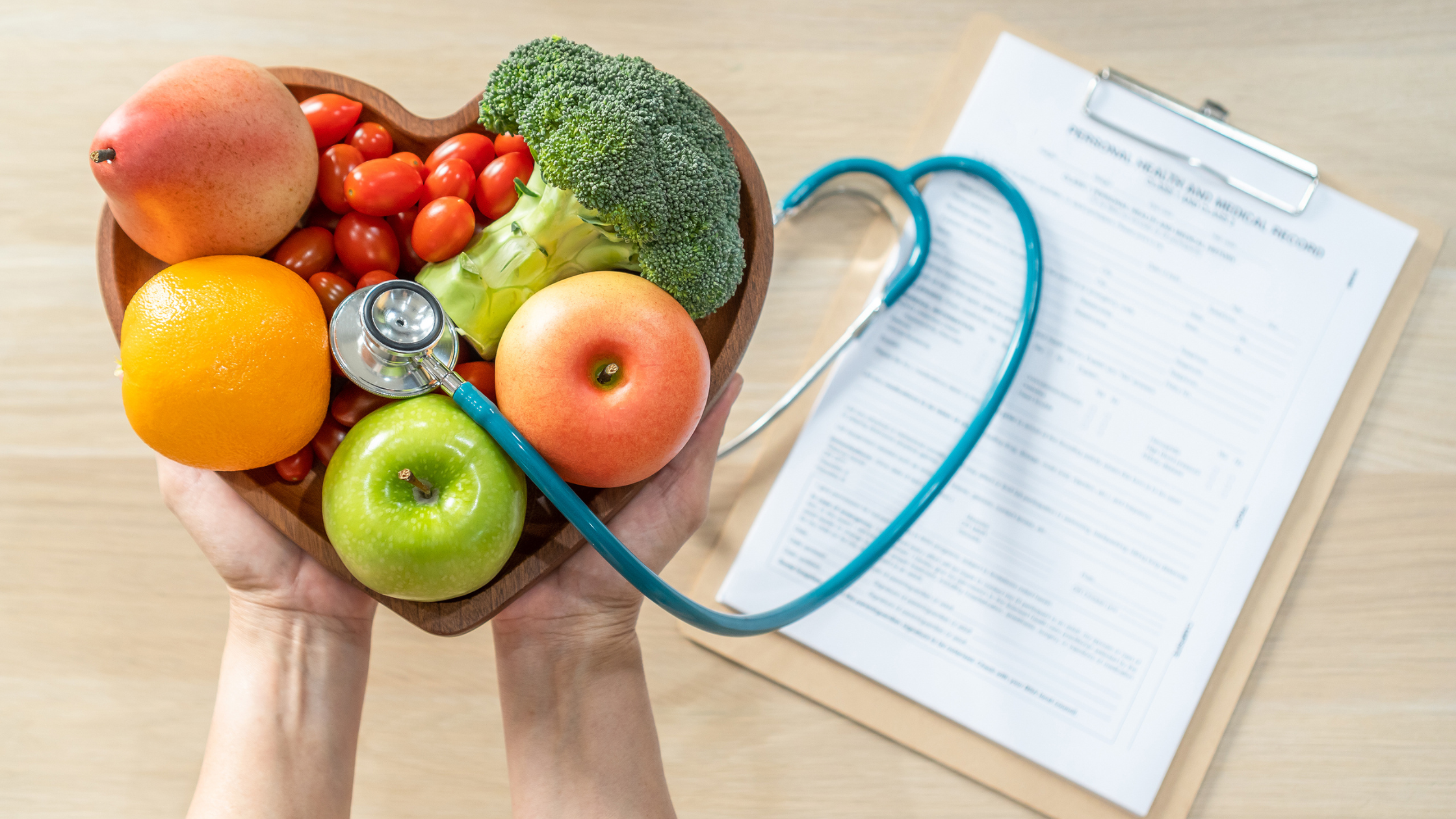Olipop vs. Poppi - A Dietitian’s Review
DISCLAIMER: Links included in this blog might be affiliate links. Health with Hannah, LLC is a participant in the Amazon Services LLC Associates Program along with other affiliate programs. If you purchase a product or service with the links that I provide I may receive a small commission with no additional charge to you. Thank you for your support!
Prebiotic sodas have hit the market, two of the most popular brands being Olipop and Poppi. As a dietitian, I have been getting loads of questions about these beverages. Which is better? Are they a healthy swap for soda? Let’s break it down!
If you’re new here, hello and welcome! My name is Hannah and I am a non-diet dietitian and personal trainer here to help you improve your relationship with your food and exercise and finally find food freedom.
Table of contents:
What are prebiotics?
Olipop and Poppi are categorized as “prebiotic sodas”. But what exactly does this mean? What even are prebiotics?
Prebiotics are a type of dietary fiber found in foods such as chicory root, garlic and onions, and bananas. All prebiotics are fiber, but not all fiber has prebiotic effects.
Prebiotics are not the same thing as probiotics, although both are important! Probiotics are not a type of fiber - they are living microorganisms that can help to maintain or improve the “good” gut bacteria. Essentially, prebiotics act as a food for the probiotics.
Olipop and Poppi contain a variety of prebiotic ingredients, which we will break down in the reviews below.
Related post: Are You Eating Enough Fiber?
Olipop review
Olipop claims to be “a new kind of soda” that supports digestive health. Olipop comes in a variety of flavors including Orange Squeeze, Lemon Lime, Cream Soda, and many more.
Olipop nutrition facts
Olipop has 35-50 calories per 12-oz can. Each serving also provides 2-5 grams of sugar and 9 grams of dietary fiber. These beverages are not a source of protein or fat.
A few Olipop flavors contain caffeine from green tea, including Vintage Cola, Doctor Goodwin, and Cherry Cola.
Olipop ingredients
Olipop has a proprietary blend of ingredients called “Olismart”, which includes cassava root fiber, chicory root inulin, Jerusalem artichoke inulin, nopal cactus extract, marshmallow root extract, calendula flower extract, and kudzu root extract. The sodas also include ingredients such as apple juice concentrate, stevia, and Himalayan pink salt.
The sources of prebiotic fiber in Olipop include the cassava root fiber, chicory root inulin, Jerusalem artichoke inulin, and kudzu root extract. These may help promote a healthy gut microbiome and improve digestion.
Olipop is sometimes touted as a “functional” beverage, meaning that it has other supposed health benefits. For example, calendula flower and nopal cactus have antioxidant properties. Marshmallow root is a botanical that may aid in a variety of ailments, including soothing the throat.
“Functional” ingredients can interact with certain medications. Chat with your doctor to make sure that these beverages are safe for you before consuming.
p.s. I have an affiliate link for Olipop. You can save 15% on your first order with coupon code SODALOVE. You can also find Olipop on Amazon. Thank you for supporting my content!
Poppi review
Founded in Texas and seen on Shark Tank, Poppi states that “it’s time to love soda again”. Poppi comes in a variety of flavors including Lemon Lime, Wild Berry, Grape, Ginger Lime, and many more.
Poppi nutrition facts
Poppi has 25 calories or less per 12-oz can. Each serving also provides 5 grams or less of sugar and 2 grams of dietary fiber. These beverages are not a source of protein or fat.
Poppi ingredients
The Poppi ingredient list is simpler than that of Olipop. Poppi is made of sparkling water, organic cane sugar, organic agave inulin, fruit and vegetable juice, organic apple cider vinegar, natural flavors, citric acid, and stevia. Agave inulin is the prebiotic component of Poppi.
Apple cider vinegar (ACV) is the main ingredient that sets Poppi apart from Olipop. Poppi states that their product contains pure and unfiltered ACV with the “mother”, which is claimed to have more gut health benefits than filtered ACV. However, there is limited research to support the claim that ACV (filtered or unfiltered) will aid in gut health.
Does Olipop or Poppi have more fiber?
Olipop has significantly more fiber than Poppi, at 9 grams per can compared to 2 grams per can in Poppi.
If you are not used to consuming large amounts of fiber, I recommend slowly easing into eating high-fiber foods and beverages. 9 grams can be a pretty large amount at once if you are not used to it. Be sure to consume plenty of other fluids as well while increasing fiber intake to prevent bloating and constipation.
Are Olipop and Poppi good for gut health?
Due to their prebiotic components, Olipop and Poppi may be beneficial for gut health. As mentioned, prebiotics are a type of dietary fiber. Fiber is a nutrient that a majority of Americans are lacking in, so drinking these beverages (especially Olipop) could be a way to fill that gap. I share other fiber sources and ideas to eat more of this nutrient in this post.
That said, prebiotic sodas like Olipop and Poppi are unlikely to be a magical gut health remedy. I also generally recommend a food-first approach, as eating high-fiber foods will be much more satisfying than liquids and can also provide other essential nutrients as well.
Which is healthier, Olipop or Poppi?
As I always say, what is “healthy” for one person may not be the “healthiest” choice for someone else. There may be valid reasons to choose either of these beverages. At the end of the day, choose the one that suits your needs and preferences. Or, don’t buy them at all if you do not like them or they don’t fit your budget or your needs.
If you are just looking to try new flavors and beverages, either of these sodas could get the job done. Not everything that you eat or drink has to be “functional”. That said, if you are looking to up your fiber intake, Olipop may be the winner for you.
Are Olipop and Poppi healthier than soda?
Many people have switched to Olipop and Poppi as an alternative to diet soda or regular soda. But is this necessary?
Olipop boasts that their product does not contain high fructose corn syrup or artificial colors or flavors, both of which tend to be in regular sodas. Poppi claims that “soda doesn’t need piles and piles of sugar to taste amazing”. It appears that both Olipop and Poppi are aiming to compete with the soda market, standing in as “healthier” alternatives.
As mentioned, a “healthy” choice depends on many factors, one of which includes price and accessibility. Both Olipop and Poppi are significantly more expensive than the big soda brands like Coke and Dr. Pepper, for example. Prebiotic sodas may not be in the budget for some people, and that is more than okay. There are so many other ways to obtain prebiotics and total fiber.
All that said, frequent consumption of sugar sweetened beverages is not generally recommended. Does this mean that you can never have regular Coke again? Of course not. It is important to consider the context and what the rest of your diet looks like. Choosing Olipop or Poppi may be a fine way to decrease your intake of added sugars if you are an avid soda drinker. You may also choose to consume diet soda as well, which are made with non-nutritive sweeteners such as aspartame. And good news - aspartame is safe in the doses that most of us would consume it.
The “why” behind your food or beverage choice is always what matters the most. Ask yourself this - why are you choosing a prebiotic soda? Would you feel guilty drinking a regular soda? Would you feel like you had to “burn off the extra calories”? If so, it would seem that your food choices are rooted in binary thinking - the idea that foods are either “good” or “bad”. But it is not that simple! There can be a reason to choose either of these prebiotic sodas, a diet soda, or a regular soda. Personally, I have included all three in my grocery cart recently!
Bottom line
Both Olipop and Poppi can be fun beverages to try and may support gut health by providing you with prebiotic fiber. If you are looking to decrease your intake of sugar sweetened beverages and you have the budget for these prebiotic sodas, they may be a good fit for you. However, this does not mean that other sodas or beverages are “unhealthy” and need to be avoided at all costs. At the end of the day, these are all different products with different ingredients that serve different purposes. Choose what makes sense for you!
What do you think about Olipop and Poppi? Leave a comment below!
Disclaimer: this post is for informational and educational purposes only and is not a substitute for professional medical advice.
Follow along
Featured video
Want more help on your diet ditching journey?
Join my signature membership to become part of a community of ex-dieters working towards food freedom and making peace with food so they no longer need to cut out their favorite foods.





































